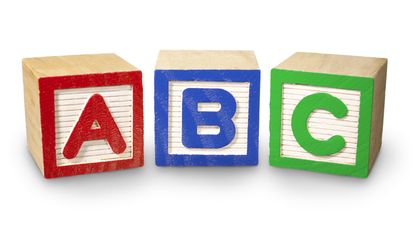The Three Basic Components of a Good Estate Plan
Getting your estate in order so everyone knows what you want when the time comes can save your loved ones confusion and stress.


We spend most of our lives planning for the future, and it starts from a very young age. You probably remember being asked what you wanted to be when you grew up. And despite how many times that answer might have changed, you most likely spent the first 20 years of your life planning, preparing and working for that dream job. But what happens when it’s time to retire? That’s a question we don’t focus on nearly as much.
If you’ve been in the workforce, you know how important it is to put money away for retirement. Almost all financial advisers will tell you to start investing, whether that be through an employer-sponsored 401(k) account or a Roth IRA.
But simply making sure you have enough money to last the rest of your life isn’t enough. If you want to be in control of what happens to the empire you’ve spent your life building, then you need to start planning your estate.

Sign up for Kiplinger’s Free E-Newsletters
Profit and prosper with the best of expert advice on investing, taxes, retirement, personal finance and more - straight to your e-mail.
Profit and prosper with the best of expert advice - straight to your e-mail.
As you begin to plan your estate, it’s important to know the three basic components of a good estate plan.
A personal instruction manual
First, you need to have a last will and testament. Think of your will as a personal instruction manual that details what happens to your stuff after you die. It’s important to list who gets what, ensuring that your belongings go to the right people. If you have kids or pets, you can decide who will take care of them and include it in your will.
Also be sure to designate an executor. This person will be in charge of making sure your wishes are followed, so be sure to choose someone you trust.
Next, you’ll want to appoint a durable power of attorney for assets. This person will function as a guardian over your finances and your things. They’ll be responsible for making all decisions regarding your money and assets any time you are not able. Having a durable power of attorney for assets is a great safety net to make sure your finances stay in check.
The final component to a solid estate plan is designating a health care power of attorney. This is similar to a power of attorney for assets, except this person will be in charge of making medical decisions for you if you are not able.
Minimizing taxes
The next step you’ll want to take when planning your estate is figuring out how to minimize income and estate taxes. One way to lower estate taxes is by giving gifts while you’re still alive. For 2024, you can give up to $18,000 per person of money or assets without triggering gift taxes. This can be a great way to help others, while potentially reducing what could be taxed later.
A more advanced way to plan your estate is by setting up a trust. Trusts are like magic vaults that hold your assets, allowing you to control how they are distributed. Setting up trusts can help minimize estate taxes and provide for specific needs, like education or health care expenses for your loved ones. A great trust can minimize taxes, reduce stress when a loved one passes away and expedite asset transfers while potentially avoiding probate.
According to Lisa Hostetler Brown, managing attorney for LawyerLisa, “Having the right documents in place is only half the battle. Every plan must also be properly implemented. For example, when a trust is used as part of an estate plan, it is critical that the trust be properly funded to achieve the desired result.”
Consider tax-advantaged accounts
Another option you have is to put money in accounts that come with tax benefits. Retirement accounts, like IRAs and 401(k)s allow your money to grow tax-deferred. This means you don’t pay taxes on the gains until you withdraw your funds. Tax-free accounts like Roth IRAs allow your money to grow tax-deferred but offer tax-free distributions as long as all of the rules, such as allowing the account to age for five years and waiting until at least age 59½ to make withdrawals, are followed.
Be sure to hire a skilled estate attorney to draft and review your documents. Once you pass away, you’ll need someone representing your wishes and making sure everything gets done according to your plan. Hostetler Brown asserts, “Discount estate planners or online ‘lawyer-assisted’ document-generating websites usually do not address all of the issues that may come up. If you don't know what could go wrong or what you are leaving out, how can you fix it?”
As you continue planning your estate, you want to make sure your assets are passed on to your heirs as efficiently as possible. You’ll first want to start by designating beneficiaries on all of your accounts and insurance policies. Naming beneficiaries ensures your assets go directly to the people you choose, allowing your loved ones to skip the lengthy, and sometimes costly, probate process. If done correctly, the entire process can be kept private instead of the information being advertised to the public.
Make sure to adjust the plan as your life changes
Once you’ve got your plans in place, it’s important to review them regularly. Life changes, and you’ll want to make sure your estate plan reflects that. Your plan should be reviewed and updated any time you experience significant life events, such as getting married, having kids, the death of a loved one or buying property.
Talking with your family about your estate plan may sound like something you’d rather avoid, but it’s important that you don’t avoid it. Letting them know your wishes can help avoid confusion and conflict once you’re gone. Plus, it gives you a chance to share your values and wisdom with those you care about.
Estate planning doesn’t have to be a complicated process. Breaking it down and implementing smart strategies ensure your assets are protected, taxes are minimized, and your loved ones are taken care of. Think of it as setting up a road map for the future to ensure that your legacy is remembered and celebrated for generations to come.
Related Content

JB Beckett has been an adviser for 24 years and is the founder of Beckett Financial Group, a specialized financial firm that helps individuals and businesses in the Retirement Red Zone build Tax-smart Retirement Income Blueprints allowing them the freedom to overcome their concerns about inflation, market volatility and taxes to retire sooner.
-
 Charitable Remainder Trust: The Stretch IRA Alternative
Charitable Remainder Trust: The Stretch IRA AlternativeThe SECURE Act killed the stretch IRA, but a properly constructed charitable remainder trust can deliver similar benefits, with some caveats.
By Brandon Mather, CFP®, CEPA, ChFEBC® Published
-
 Three Ways to Take Control of Your Money During Financial Literacy Month
Three Ways to Take Control of Your Money During Financial Literacy MonthBudgeting, building an emergency fund and taking advantage of a multitude of workplace benefits can get you on track and keep you there.
By Craig Rubino Published
-
 Charitable Remainder Trust: The Stretch IRA Alternative
Charitable Remainder Trust: The Stretch IRA AlternativeThe SECURE Act killed the stretch IRA, but a properly constructed charitable remainder trust can deliver similar benefits, with some caveats.
By Brandon Mather, CFP®, CEPA, ChFEBC® Published
-
 Three Ways to Take Control of Your Money During Financial Literacy Month
Three Ways to Take Control of Your Money During Financial Literacy MonthBudgeting, building an emergency fund and taking advantage of a multitude of workplace benefits can get you on track and keep you there.
By Craig Rubino Published
-
 How Did O.J. Simpson Avoid Paying the Brown and Goldman Families?
How Did O.J. Simpson Avoid Paying the Brown and Goldman Families?And now that he’s died, will the families of Nicole Brown Simpson and Ron Goldman be able to collect on the 1997 civil judgment?
By John M. Goralka Published
-
 What Not to Do if an Employee or Loved One Is Kidnapped
What Not to Do if an Employee or Loved One Is KidnappedBusinesses need to have a crisis plan in place so that everyone knows what to do and how to do it. Sometimes, calling the authorities isn’t recommended.
By H. Dennis Beaver, Esq. Published
-
 Why You Shouldn’t Let High Interest Rates Seduce You
Why You Shouldn’t Let High Interest Rates Seduce YouWhile increased interest rates are improving the returns on high-yield savings accounts, that may not be an effective place to park your money for the long term.
By Kelly LaVigne, J.D. Published
-
 Need to Build an Emergency Fund? Seven Steps to Get There
Need to Build an Emergency Fund? Seven Steps to Get ThereHaving a safety net can mean peace of mind on top of being able to maintain your lifestyle if a financial emergency strikes.
By Justin Stivers, Esq. Published
-
 Which Type of Life Insurance Is Right for You?
Which Type of Life Insurance Is Right for You?Life insurance isn’t a one-size-fits-all option. Here are the differences between term life, whole life and indexed universal life insurance.
By Jay Dorso Published
-
 What Happens Financially When You Work One More Year?
What Happens Financially When You Work One More Year?The impact of saving more, spending less later and benefiting from an extra year or more of compounding can be truly staggering.
By Andrew Rosen, CFP®, CEP Published